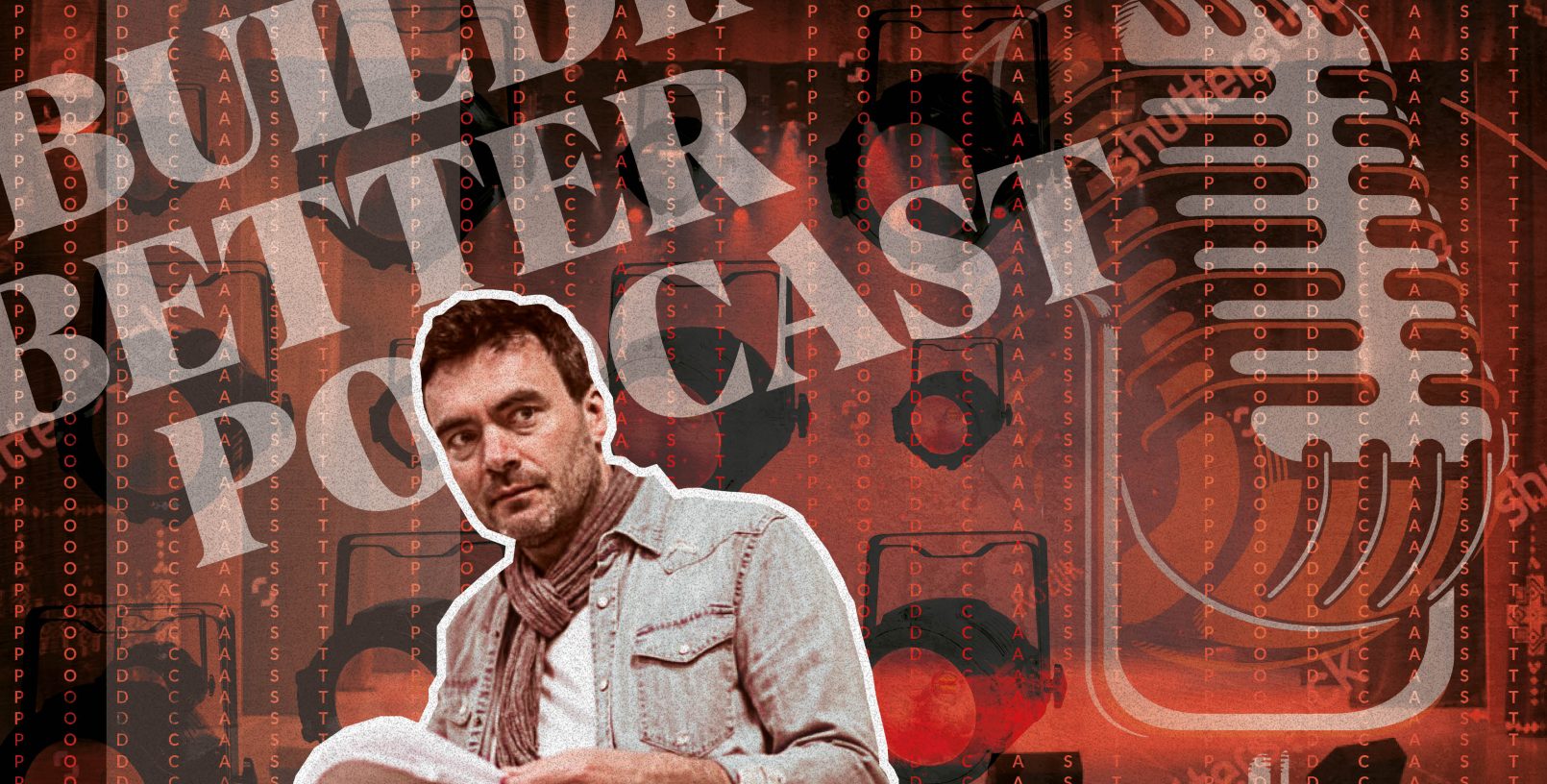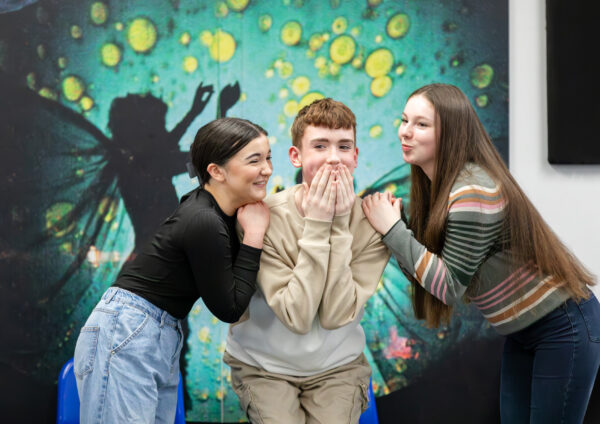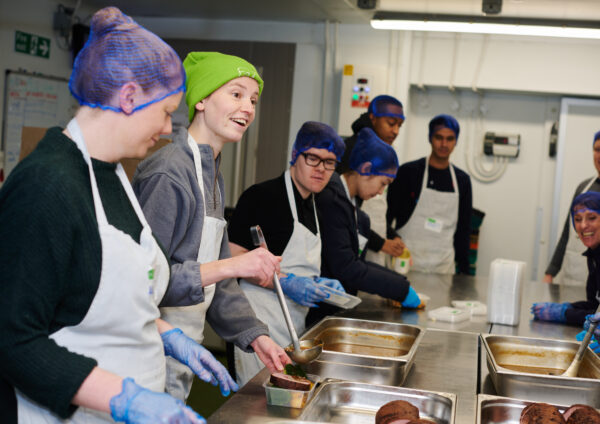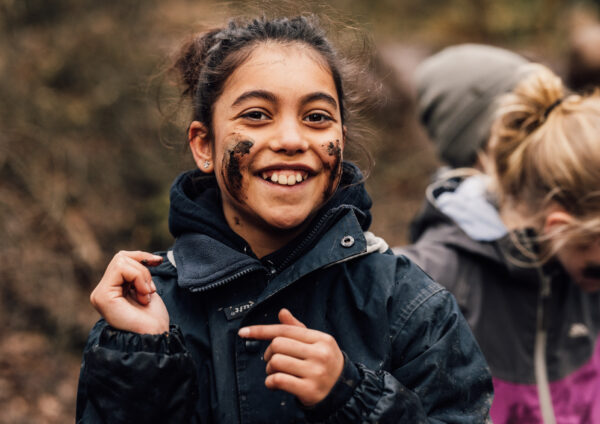As Co-Artistic Director of the Playground Theatre in West London, Anthony Biggs has a diverse role. The Theatre is a space for the acting community as well as the local community, and that means outreach projects run alongside theatrical productions.
In the latest Ambassadeurs Group (AG) podcast he talks about coordinating productions with the Theatre’s Well Read community outreach programme, where locals read plays with trained actors. He also discusses the impact of the AG alliance. ‘It is just wonderful to have an alliance with an organisation that has pillars [which include education, community and, mental health and wellbeing] that are aligned with our policies,’ he says.
‘It is a joy to know we are on the same path and want to support our local community, are interested in education and that we are interested in supporting the mental health of the people we are in connection with. It gives a real sense of purpose knowing that Ambassadeurs Group is on the same path as us.’
The Theatre takes its role in the local community seriously; it is close to the Grenfell Tower and opened just after the devastating fire in 2017. In February 2023 the Theatre kicks off a limited season performance which will move to other theatres, called Grenfell System Failure: Scenes from the Inquiry. This verbatim testimony is the second part of the inquiry to be told on the stage, taking real testimony from the inquiry to tell the story. The first part, told 18 months ago, was shown at the Playground Theatre and also filmed for Channel 4. ‘It was well received by the Grenfell community, which is the most important thing,’ says Anthony.
The financial support which comes with the AG alliance will enable the Theatre team to plan in a more strategic way than previously. It will enable continued outreach work as well as more performances that entertain as well as encourage audiences to think.
‘Theatre is a mirror – we look at ourselves and by looking at ourselves we get to see things we like and things we don’t like. We also empathise. We get an insight into how other people feel,’ says Anthony.
Claire: This is the Ambassadeurs Group podcast, where we’re talking all things building better futures. It aims to be a celebration of innovation, industry disruption, raising standards and giving back, all of the things that help build better futures for people, the planet, members and communities, wherever they are.
Introducing Anthony Biggs and the Playground Theatre is going to feel a little bit like a night at the Olivier Awards because I might have to reel of names of some world class productions – or I might let Anthony do that himself. Anthony is artistic director of the Playground Theatre in West London – more of that later on – he trained as an actor, worked in regional theatre in the West End before moving into to directing. He was associate director and then artistic director of the Jermyn Street Theatre and then in 2017 became co-artistic director of the Playground Theatre. He’s done tonnes with the theatre and beyond, including directing the Gala Centenary event for Save the Children at the Roundhouse, featuring Joely Richardson and Helena Bonham Carter, and the children’s company Chickenshed. But we’re here to talk about the Playground Theatre and specifically its alliance with Ambassadeurs Group. For me, the best way of describing the Playground Theatre is a theatre with real heart. Based in West London, it combines production with play, their word, mine might be experimentation, gives home to new talent and emerging talent, as well as outreach programmes in the local community. There’s a lot to talk about, welcome Anthony.
Anthony: Thank you, I’m delighted to be here.
Claire: So, I touched in the intro on all the stuff you do, lets go straight to being co-artistic director of the Playground Theatre, what does that mean? What is the role?
Anthony: What’s it mean to be an artistic director? Well, it has two elements to it. Really, the first element of an artistic director, it says it in the words, is that you have to create the artistic programme. So that’s my role, is to make sure that everything that goes on in a building, in this theatre and any theatre that I’ve been artistic director of, is the artistic programme is properly laid out and that you keep to a policy that has been determined by me and perhaps a board and usually an exec director. What unusual in the Playground’s case is that actually the person who takes on that role is my co-artistic director, Peter. So, that’s how those two strands work. So, although we’re both creatives because I’m a director and he’s an actor, the artistic programme is mostly led by me and Peter tends to look more after the financial side of things. And then the other side of it is the second word, which is director, which is that I tend to direct an element of the programme to. I don’t direct everything. In the old days, an artistic director directed pretty much everything in a building, but those days are long gone and now I would probably direct two or three shows a year.
Claire: Right.
Anthony: Yeh.
Claire: So, again, I mentioned in the intro that the Playground Theatre is this really interesting mix, particularly for me as a non-theatrical person, I don’t understand the industry particularly, but its that mix of craft, creativity, experimentation and the community outreach. Was that mix important to you when you joined?
Anthony: It was, I have been involved in all elements of theatre and when I first started directing I worked as an education associate when I first trained and that was actually at a theatre called Watford Palace, not that far away. And I then worked for a national touring company doing that role. So, my root into theatre after I had been working as an actor was as a director was in education. So, that element of theatre is very important to me, and I’ve always been a passionate believer that really if you don’t build a new audience, we won’t have one. So that was very important. My previous theatre, Jermyn Street Theatre, which is in the West End, is a wonderful theatre, but doesn’t really have a local community and thus, doesn’t really have a young audience that comes. And so, when I was looking at the Playground or other places that I might go to, I was really interested in that area. Because first of all, it’s a really interesting area, it’s sort of Tri-Borough area, so it’s right at the top of Kensington, Chelsea, the Borough of Kensington and Chelsea, The Royal Borough of Kensington and Chelsea, it’s close to Hammersmith and Fulham, West Minister, it’s got all kinds of interesting things around it, it’s got Portobello and the wealth of Notting Hill, it’s got more deprived areas around, like the Lancaster West Estate, which is where Grenfell is, it’s got one of London’s biggest prisons just round the corner, it’s also got some very large schools very close to us. So, it’s a family area, it’s got lots of schools, all these people are potential audience members for the Playground.
Claire: One of the things we touched on, I touched on in the intro is the community outreach and I’ve been to one of your well-read programmes and it was great, it was really impressive, it brought together a really eclectic mix of local community, who wouldn’t usually I guess get that access and interaction to deal with reading plays. I mean, it’s something none of us really get unless we’re in the profession. So, how do you keep that going alongside what, clearly you know, big demands of the core theatre business?
Anthony: It’s a challenge because just running a building and programming a theatre is quite an ask in itself. Particularly a small theatre because you end up multitasking, otherwise nothing would end up happening. The outreach element of it is, as I said earlier, is very important to me, so I wanted to make sure it could happen. We then established a team, so there’s an outreach director and we have a team of about ten people, who work for us on a fairly regular basis, running workshops for us. So, we have a wonderfully, very talented, very experienced team who work with us and that’s allowed us to be able to work outside of the building. So, when we talk about outreach or community work, some of that happens inside the theatre, though the one you came to happened in our café. But, actually, most of it, a bit like an iceberg, the majority of it takes place outside of the building, in other places.
It’s partly because people wouldn’t necessarily feel comfortable coming into a theatre, it takes a fair amount of courage if you’ve never been in a theatre to step into it. I mean for us, we’re probably more familiar with the process of doing that, but for many people close to the Playground, they’ve never been in a theatre, and they probably think theatre isn’t for them, even though theatre is really a mirror, that’s what it is, it’s a mirror for us. If we go to the theatre, we look at ourselves and by looking at ourselves we get to see the things that we like and we don’t like and it also allows us to empathise because your seeing people play other characters and if you take participating as well in it, you’re going through the process of playing somebody else, so you get the chance to emphasis and hopefully in that process just get a little bit of an insight into how other people feel.
Claire: So, interestingly, the well-read session that I attended was a play and I can’t remember what it was called, but it had characters, Margaret Thatcher, the Queen, old and young. And, it was really fascinating, people were just given parts and interchanged actually, so took different parts, but were really happy, men read women’s roles, people did stage direction, it’s really inclusive and really vibrant actually.
Anthony: Yes, well that was sort of part what we decided we would do when we first began it, was that if you came along, it doesn’t matter who you were, you would get a chance to read. So, the first time I did it, I was asked by St. Charles Hospital, the mental health unit there, if I would come up and do some theatre with the service users, the old-fashioned word is patients, but service users on the ward. And, you know, initially honestly, I was a bit stumped. I was like I’m not entirely sure what I will be able to do. The first few sessions, it was a bit tense, you know you’re in a very, very challenging environment on a locked ward, where things could so often go slightly wrong and there’s all kinds of distractions and things like that, but actually what I discovered there is that people loved it and very quickly, it became the most successful outreach project for them because they loved coming along, it was a chance for them to forget about the rest of the things that they were going through, they got to play other people. As you say, they got to play people who are nothing like them and the one thing about mental health is that we all suffer from mental health issues in some way or another and you could be you know eight or eighty, you could be from all kinds of ethnic backgrounds, or cultural backgrounds, or financial backgrounds, you might come with various abilities or not, all of those people come together and are then trying to play different people, its wonderful and we’ve had in the process of people doing it, we’ve had people play people who are nothing like them.
Claire: Yeah.
Anthony: And, hopefully, maybe learn again, sort of what was said earlier, maybe learn something about other people.
Claire: So, I think that brings us really neatly to the fit with Ambassadeurs Group. So, given what you do and given that Ambassadeurs Group’s overall aim is to raise standards and give back, it feels like a good fit to have an alliance with the two. The way that Ambassadeurs Group organises its corporate philanthropy and community engagement is around four areas, which again seem a really great fit with the Theatre, mental health and wellbeing is one, education, our community, and then safer gambling, which I think you’ve got less in common with. But what would the Theatre get from the alliance?
Anthony: Well, the first thing to say is that I am delighted with the alliance because as a theatre, it is just wonderful to have an alliance with an organisation which has, really as you’ve just said, the pillars that you’ve just detailed, those are so aligned with the how we feel and our policies. Having that is a joy, really is a joy, to know that we are on the same path and that we really do want to support our local community and we are interested in education and we are interested in supporting the mental health of the people that we are in connection with. For us, it gives us a real sense of purpose knowing that Ambassadeurs Group are on the same path as us. So, that’s the first thing to say.
Really, of course, having financial support allows us to be able to plan as a theatre more than just the next couple of projects and as a small theatre, we’ve only been going for five years. We opened just after the Grenfell fire in 2017, which is close to where we are. And we’ve done a fair amount of work, but then right in the middle of that we got COVID, and like every theatre and artistic organisation and many other people, we were devastated by that, it took all our, in a way, our sense of purpose and being away because we didn’t have an audience. So, we had to get over the hump of that, which we have done because a lot of our work moved online, but coming back again, as we start to pick up pace again, to know that we’ve got a period of time, three years of being able to, and perhaps this relationships lasts longer, hopefully, it allows us to be able to be strategic in the way we’ve never been able to do before.
Claire: I suppose you’ve mentioned money, and money is important, but alliances and relationships are about so much more than that, aren’t they? However, I think we should talk about some of the tangible outputs, so give me a sense of things, a sneak preview I suppose, of what’s coming up, or great highlights. I think you’ve touched on Grenfell, and I know there’s a big stage production coming soon.
Anthony: Yeah, so in 2017 when we opened, we worked with the Grenfell community, in fact prior to even opening as a theatre, we were doing workshops with a charity called Grief Encounter which we did in our space before we even had any seats, or lights actually, and we still have a connection with that charity. And then over the first few years that we were in existence, we continued to work with other groups like Kids on the Green, Lancaster West Estate and others who have also been supporting people directly affected by Grenfell. We then decided that it was time for us top be actually involved in the telling of the story, so we partnered with a director called Nicholas Kent, whose a verbatim theatre maker. Verbatim theatre is theatre that actually uses really testimony and in this case it’s the testimony from the Grenfell enquiry, and we did a play about 18 months ago which was very successful, which was the first part of the enquiry and that ended up being filmed for Channel 4 and it was very well received, particularly by the Grenfell community, which is in fact the most important thing. And now, we’re about to do the second one, which goes into production in about a weeks’ time, ten days’ time. So…
Claire: So, its busy, its busy?
Anthony: It’s a busy time, yeah, I mean we are a small theatre, but because, well you’ll know because you’ve been, we’re an old bus depot, the building and so, we are a very very flexible space, so when a company like that will come in, we almost redesign the theatre every time to accommodate a production like that.
Claire: I think the thing I was very struck by, is it seems you do have a very fast, rapid turn over of production, which I suppose puts the pressure on everything, it’s the pressure on your time, but on sets and moving things around and I suppose the whole marketing function as well. So, how do you keep ahead of that, how do you plan?
Anthony: Well, its interesting you say that because commercial theatre, sort of the stuff, the work that you might see in the West End tends to run for longer.
Claire: Forever!
Anthony: Yes, yes, some does, yes. Les Misérables will run or many many many years and most plays, even if they are in for limited seasons will run for about 14 to 16 weeks. But that really isn’t feasible for a smaller theatre because you’re never really running into a place where the revenue that you would generate from your box office would be able to support the running of the play. So, we are really, primarily we’re a development space, so people come in and they’re either trying to develop something from the very beginning, the seed of an idea, the germ of an idea, or they’re taking it a little bit further on in the process and they’re wanting to stage that. And even then, they’re still staging it with the idea that they’re going to be able to take it somewhere else. So, when you see something and you said there’s a higher turnover, that’s because people are coming in and they’re only really giving it, its like giving it a first glimpse of something, and hopefully that’s what the audience buys into. That’s part of the excitement of coming, you go, this is being newly minted.
Claire: So, you’ve mentioned the Grenfell play, is there anything else that we should look to or book tickets for this year, what’s on your horizon?



